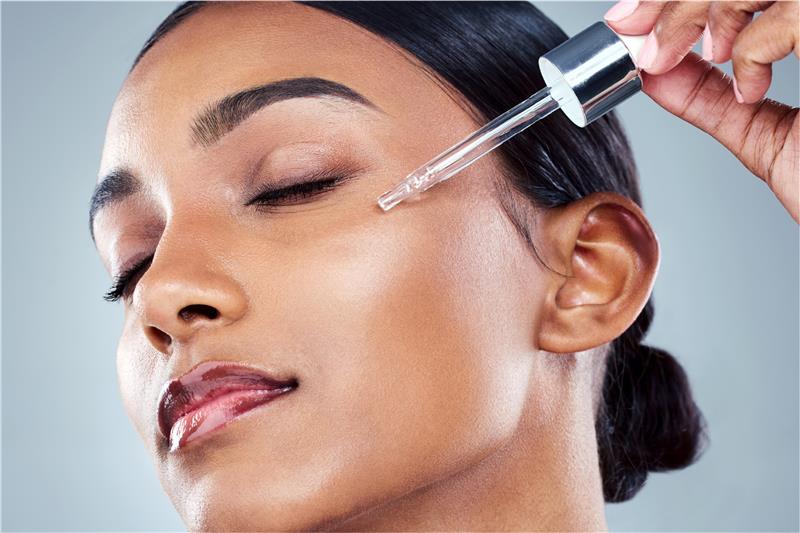
One of the most common skincare dilemmas? Figuring out what goes on when. If you’re revamping your routine, or simply starting out, wondering where Vitamin C fits into the mix, we’ve got all the answers.
When used at the right time, it pulls double (and sometimes triple) duty, giving your skin the glow-up it deserves. Ready to unlock its potential? Let’s get into it!
When to Apply Vitamin C Serum for Best Results
From brightening dull skin to fighting free radicals and boosting Collagen, Vitamin C does it all. But just like every other skincare product, timing is everything. So, when should you reach for that citrusy little bottle? The answer might surprise you.
Understanding the Ideal Time – Morning or Night?
The secret to reaping the benefits of Vitamin C lies in using it in both your AM and PM routines. Here’s how to make Vitamin C the MVP of your beauty regimen:
Daytime for antioxidant protection: When used in your morning skincare routine, Vitamin C neutralizes free radicals, shielding your skin against environmental stressors such as UV rays and pollution. The result? Brighter, more even-toned skin with added protection from oxidative stress.
Nighttime for skin repair support: When used at nighttime, Vitamin C works in harmony with your skin’s natural process. As you sleep, it boosts Collagen, helps reverse damage caused by sun exposure and pollution, and reduces the appearance of fine lines. Come morning, your skin looks firm, radiant and like it got eight hours of beauty sleep (even if you didn’t).
Ultimately, the key to getting the most out of Vitamin C lies in aligning it with your unique skin type, lifestyle habits, and the rest of the actives in your skincare lineup.
Vitamin C Serum Morning or Night – Which is Better for Your Skin?
So, should you slather it on in the morning or save it for nighttime? The answer isn’t one-size-fits-all – it all comes down to what results you’re hoping to achieve.
1. If you have oily or acne-prone skin, incorporating a Vitamin C Serum into your morning regimen can help control excess oil and shield your skin from environmental stressors.
2. On the other hand, dry and sensitive skin types may benefit more from using it at night – especially alongside soothing, barrier-supporting products. Tailoring it to your skin’s needs is what makes all the difference.
Is It Okay to Start Your Day With Vitamin C Serum?
Yes, absolutely! Applying Vitamin C gives your skin an antioxidant boost to face the day ahead. It helps fight off free radicals, reduce the effects of UV damage, and defend against pollution. For best results, always follow it up with a broad-spectrum sunscreen to double down on protection and keep your skin looking bright and healthy.
Should You Use Vitamin C Serum at Night Instead?
Most people reach for Vitamin C in the AM, but if your goal is recovery and renewal, your nighttime might be the perfect fit. Let’s delve deeper into the ingredient’s nighttime benefits-
1. At night, your skin enters its natural regeneration phase, making it the perfect time for Vitamin C to undo the day’s damage.
2. Additionally, pairing Vitamin C with hydrating ingredients like Hyaluronic acid can enhance absorption and lock in moisture, giving you smoother, plumper skin by morning.
So if you’re aiming for a glow that goes beyond just protection, nighttime might be the sweet spot for your Vitamin C fix.
Daily vs. Twice-Daily Application – What Dermatologists Recommend
When it comes to how often you should apply Vitamin C, most dermatologists agree that using it once daily is sufficient to reap its benefits. For those with sensitive skin or who are new to active ingredients, starting with alternate-day use can help your skin build tolerance without triggering irritation. Overusing it – especially alongside other actives like Retinol or exfoliating acids can lead to redness, dryness, or sensitivity. The key is consistency, not frequency, so a well-formulated product used once a day can go a long way in improving your skin over time.
Common Mistakes To Avoid With Vitamin C Serum
Vitamin C serum can work wonders for your skin, but a few common mistakes can prevent you from seeing its full potential. Watch out for these:
1. Using It Without Sunscreen (If Applied in the Morning)
Vitamin C can make your skin photosensitive, and skipping SPF not only increases the risk of sun damage but also cancels out the protective benefits of the serum. Always follow up with sunscreen!
2. Storing Serum Incorrectly
This powerhouse ingredient is notoriously delicate – it oxidizes easily when exposed to light, oxygen, or high temperatures. To maintain its potency, always store your serum in a cool, dark place – ideally in an opaque, airtight bottle away from sunlight.
Conclusion – Vitamin C Serum Morning or Night?
Now that you’re in on all that Vitamin C can do, it’s time to make it a non-negotiable in your skincare arsenal. Use it in the morning for defense, or at night for repair – either way, staying consistent is what delivers results.
FAQs
1. How to apply Vitamin C serum properly?
Start with a clean, dry face. Once you’ve cleansed and toned your skin, use your fingertips to apply a few drops of Vitamin C directly onto your skin. Let it absorb fully before going in with your moisturizer and sunscreen (if using in the morning).
2. Can I use Vitamin C serum in the morning and retinol before bed?
Of course! Vitamin C protects and brightens your skin during the day, while Retinol helps with cell turnover and repair at night. If you’re new to active ingredients, be sure to introduce them gradually and moisturize well to avoid irritation.
3. Is it best to apply Vitamin C serum in the morning?
Morning is ideal for most people because Vitamin C acts as an antioxidant shield against UV rays, pollution, and other environmental stressors. However, it can also be used at night, especially if your focus is on skin repair and you’re using other actives in the morning.
4. How often should I apply Vitamin C serum for visible results?
Once a day is usually enough. Use it consistently and you should begin to see a healthy glow and improved tone in around five weeks. If your skin is sensitive, ease in gradually with alternate-day use.




